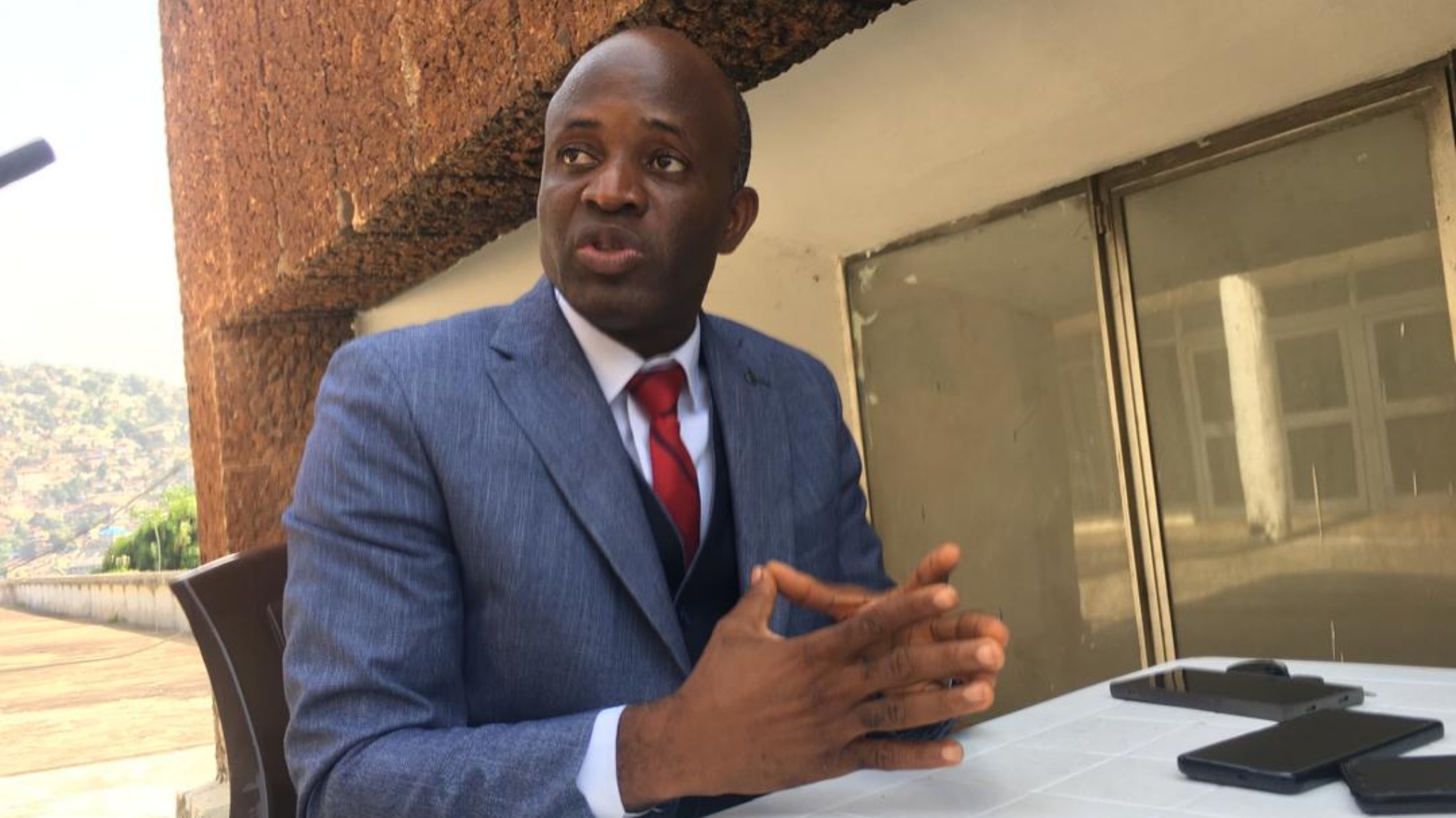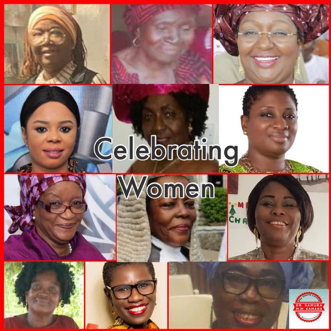
An Op – Ed By Dr Samura Kamara
The 8th of March was International Women’s Day – a day set aside to celebrate our womenfolk. It is also a day to applaud women who have shown extraordinary courage and tenacity in breaking the social, political and cultural barriers to emancipate themselves and become shining examples to their peers and the younger generation. It’s a day we remember those who struggle everyday to keep their families going and highlight the struggles of those who barely survive.
The theme for this year’s celebration; “Women in leadership; achieving an equal future in COVID -19 world” cannot be more relevant than now – a time the world battles against a pandemic that continue to have devastating consequences on our social and economic fabrics. As the pandemic keeps on having its toll on the world economy, growth opportunities for women become even more limited and our quest for equal opportunities for women is clearly being thrown into peril.
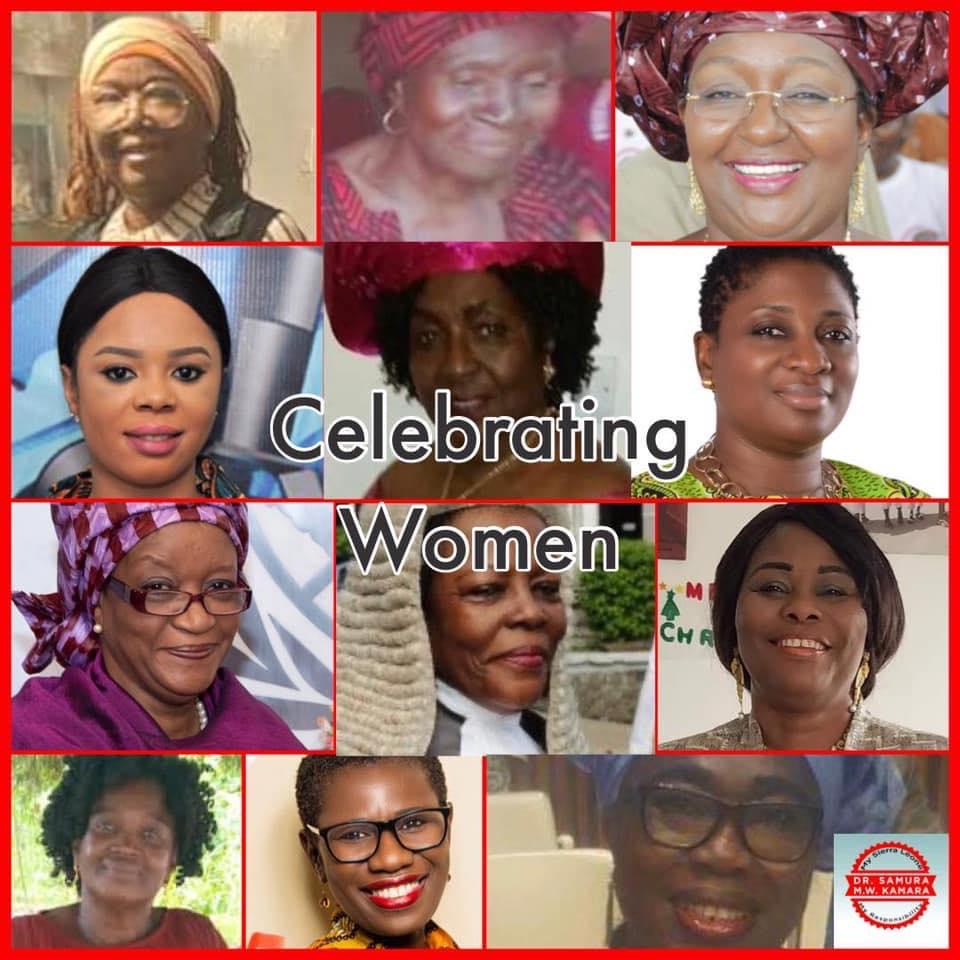
Already, there are countless stories of our womenfolk who have got to endure inordinate hardship to keep on going like Mamusu Conteh, a widow at Petifu Mayawa, Northern Sierra Leone. Mamusu would leave her house in the morning to work at an oil palm plantation where she would be paid in kind – half a gallon of palm oil . She would have to convert the palm oil into cash by selling some of it at a nearby market for Le8, 000 (less than One Dollar). This will make up her daily income which is grossly inadequate to feed her children who are either malnourished or permanently hungry. Constantly, she would have to augment whatever cooking items her meagre income could buy by sourcing other ingredients like salt and maggie from the benevolence of relatively better – off neighbors.
For many of us from humble backgrounds, the above narrative is an all too familiar story – of the struggles thousands of women have got to routinely endure to keep their families together. It is a vivid illustration of the unimaginable sacrifices by our less fortunate female compatriots in the face of increasing economic uncertainties and a disease that threatens our very existence.
The challenges to women’s empowerment are not limited to economic inequality. Political representation is an equally thorny issue. The widely discussed policy for a 30% quota for female Parliamentary representation has been farfetched despite some significant gains made in that direction since 2007. We agree that the need for women to take up leadership positions and participate in the decision-making process is as critical as our overarching aim to live in peace and prosperity but we need to make the environment conducive and even attractive for their participation. The violent and toxic dimension characterising our politics does not incentivise our womenfolk; if anything it repulses them.
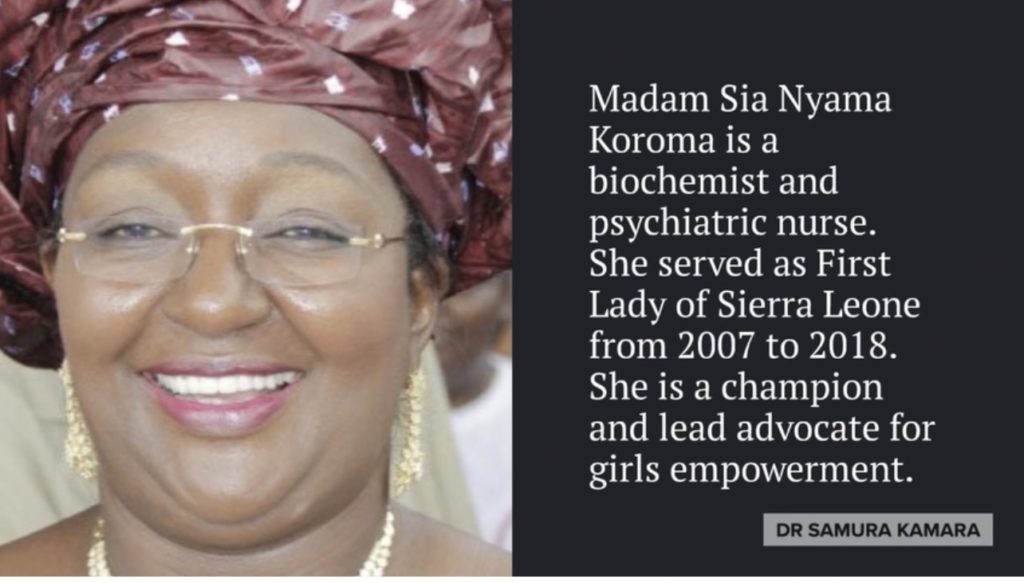
There is also the critical element of education. We cannot achieve equality for women without laying the foundation for an enlightened female leadership. To this end, educational opportunities for women in viable subject areas will prepare them for leadership roles. And this requires affirmative actions and deliberately harnessing the opportunities in the fields of IT, science and commerce for their empowerment. Perhaps, we should start exploring the possibility of reviewing our school and university curricular as an adaptive measure to embrace technology and innovation for female students.
And there is the elephant in the room – the health of our womenfolk. Studies after studies have come out with the rather embarrassing conclusion that our country is a dangerous place to be a woman. To bring life, too many Sierra Leonean women lose their lives and or their babies or end up with life – long complications. 1 in 17 mothers has a lifetime risk of dying in connection to childbirth. Our nation’s maternal mortality rate among the highest in the world with 1,360 mothers dying in every 100,000 live births. The mortality rates of neonates, infants and children under five are also amongst the highest globally at 34, 82, and 111 deaths per 1,000 live births, respectively
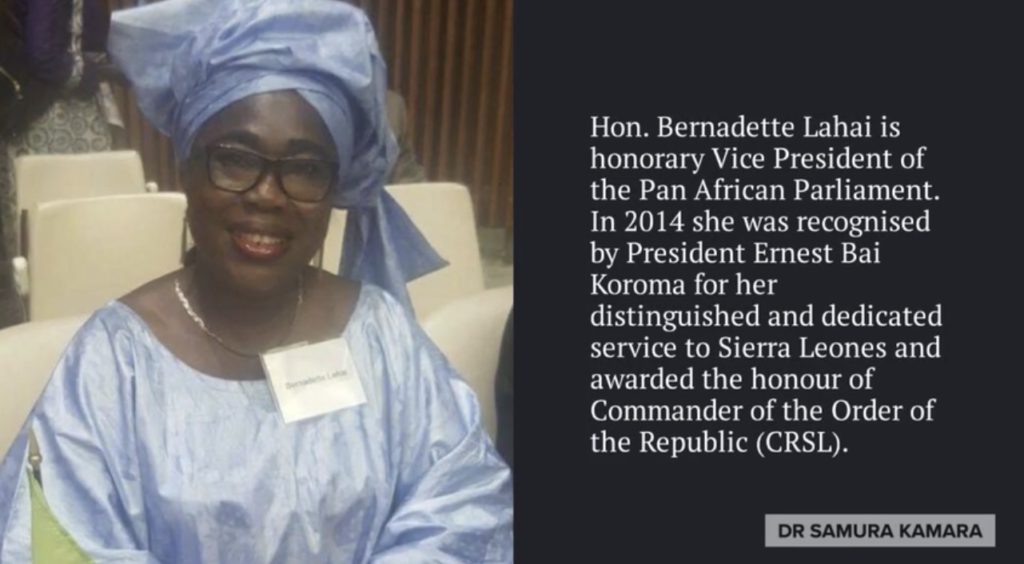
These figures are unacceptable and addressing this calamity must be front and center of government priorities. The focus should be on more and better equipped and better managed hospitals, more training and better conditions of service for our health workers. Monies spent on tea and fuel and needless super salaries of countless partisan employees could be better spent in the health sector. And while the private sector must be enabled to fully participate as well, government must make more substantial and sustainable investments in the health of its citizens.
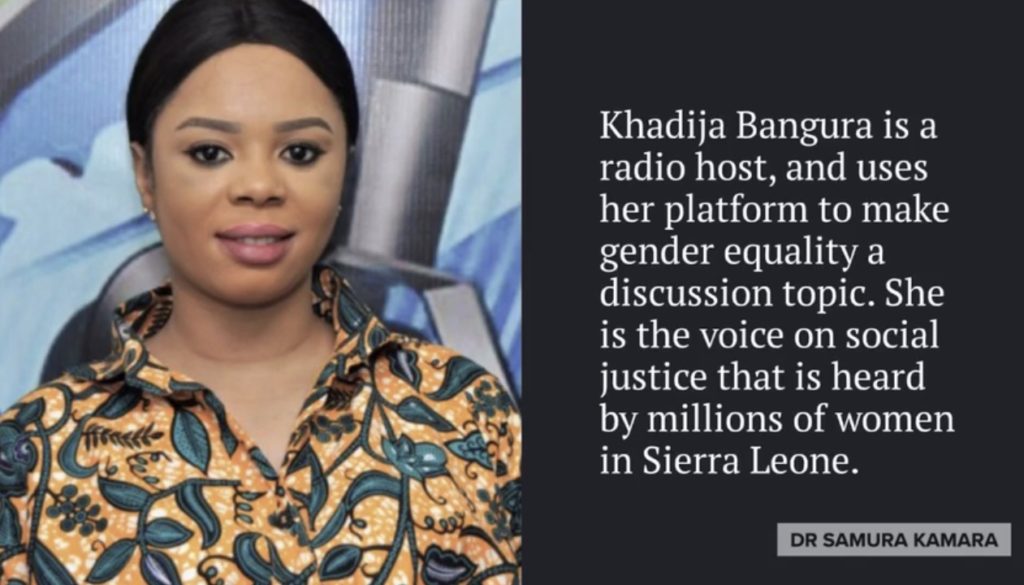
It is easy to keep reminding ourselves about the incredible role women continue to play in the advancement of our society and closer to home, we can easily relate to women like Zainab Bangura, Justice Samba and even Ellen Johnson Sirleaf and Ngozi Okonjo-Iweala who recently became the first African and first woman to serve as Director –General of the very powerful World Trade Organization (WTO). The heavy lifting, however, is to lay the foundation for such admirable progress for many more women through education, better health services and safer political participation.
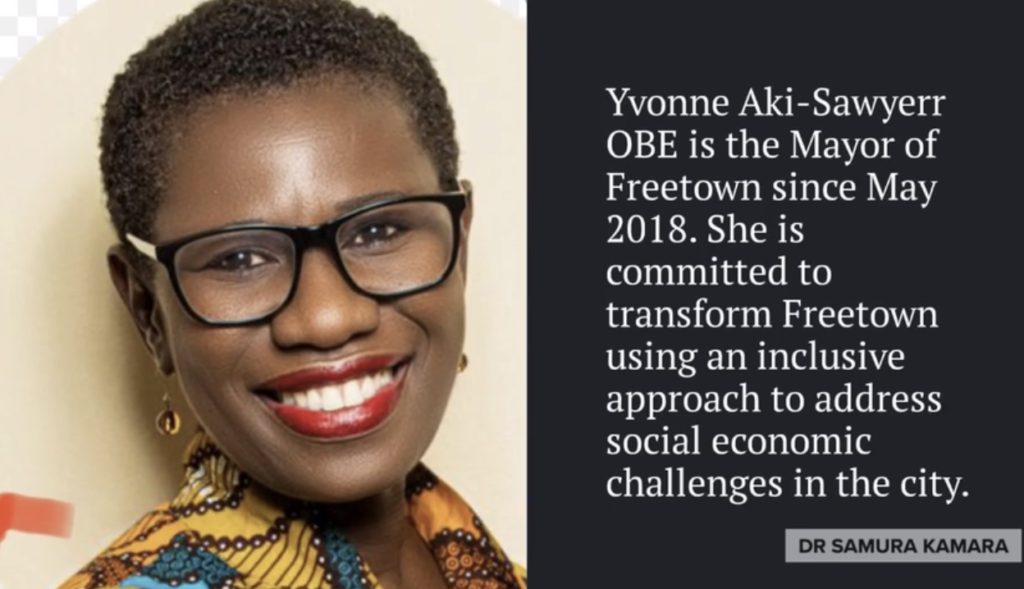
Yes, some progress has been made policy-wise as in the enactment, for example, of the Three Gender Acts. The Domestic Violence Act of 2007, The Devolution of Estate Act and the Registration of Customary Marriage Act of 2018, no doubts represent a bold attempt at not only guaranteeing the protection of women but also streamlining the legal frameworks that have hitherto proven to be the bastions of discrimination against women in Sierra Leone. However, the question as to whether we have been able to fully implement the very brilliant provisions in those Acts lingers on.
Is it not ironical that the state which has the responsibility to protect the rights and freedoms of its citizens has been rather complicit in the injustices women face simply because of the lack of courage to bring out the perpetrators for some parochial social and political reasons?As stories of women allegedly ganged raped in Kailahun, Pujehun and Bonthe Districts go uninvestigated, the silence of civil society over such matters has been annoyingly worrying.
Whilst the government may have done well to establish a special court for rape victims, we are still miles away from any serious action taken against the real perpetrators. And there are some sections of the public that believe that politics should not be allowed to undermine trust in the much needed judicial action against the menace of sexual violence.
Can this day remind every critical stakeholder of their responsibility to ensure that we adopt a paradigm shift in our modus operandi on women’s issues?
As we commemorate this day, the government needs to get serious and also be genuine in addressing issues of inequality and women empowerment, not least on the ‘bread and butter’ issues, as exemplified by women like Mamusu Conteh of Petifu village in Tonkolili and many others like her at Dove Cut, Abacha Street, Bombay Market, Krootown Road Market, Lumley Market. Too many of our grassroots women are all around at market centers daily eking out a living for themselves and their households. Too many dying trying to give birth, too many confronted with sexual and gender based violence.
Therefore as we mark this special day, we should not just celebrate the glimpses of successes rather; we must reflect more poignantly on how we can better serve the needs of the extraordinary Sierra Leonean woman and girl and explore better ways to empower them.
A country that neglects its women neglects its own welfare and undermines its progress.
Happy International Women’s Day celebrations to all Women in Sierra Leone and across the world.

